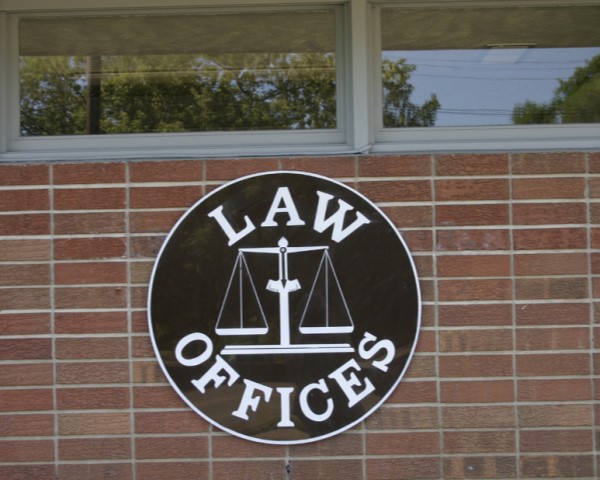
Legal: Examination Requirements
All lawyers practicing in the United States belong to a state bar in order to be licensed as an attorney. Admission standards vary by state, but every state requires applicants to take a bar examination. Most jurisdictions in the United States also require bar candidates to take the Multistate Bar Examination, with some combination of local essay exams.
A number of states require a multistate performance test and/or a responsibility (ethics) exam. Currently, only a handful of states subscribe to a "national" exam, the Uniform Bar Exam, which is comprised of the above components. There is a movement to adopt a national bar exam in more states so that law graduates can have more certainty in a difficult job market, and be prepared for admission in more than one state.
To be eligible to take the state bar exams, each jurisdiction requires law students or graduates to submit an application. Parts of the application can be due eight months before the test date, compounding the difficulty for a law graduate who has not yet secured employment, and doesn't know which state to choose. As part of the application process, most state bars also ask for letters of recommendation, references and other personal information.
The two days of tests can include the following:
- Multistate Bar Examination: Most states, including those with a Uniform Bar Examination, require the six-hour Multistate Bar Examination (MBE) as part of their overall bar examination. The American Bar Association's Comprehensive Guide to Bar Admission Requirements, available annually in the ABA Store, details the exam process. The MBE and other requirements are identified in the guide. Other standardized tests developed by the National Conference of Bar Examiners (NCBE) may also be required by individual states. Specific requirements are listed on individual State of Jurisdiction Web sites.
- Multistate Performance Testing (MPT): Tests the practical skills of a beginning lawyer, consisting of two 90-minute skills questions. The MPT is designed to test an examinee’s ability to use fundamental lawyering skills in a realistic situation and complete a task that a beginning lawyer should be able to accomplish. The MPT is not a test of substantive knowledge. Rather, it is designed to evaluate certain fundamental skills lawyers are expected to demonstrate regardless of the area of law in which the skills are applied.
- Multistate Essay Exam (MEE): Three-hour exam to test competency to practice. The purpose of the MEE is to test the examinee’s ability to identify legal issues raised by a hypothetical factual situation; separate material which is relevant from that which is not; present a reasoned analysis of the relevant issues in a clear, concise, and well-organized composition; and demonstrate an understanding of the fundamental legal principles relevant to the probable solution of the issues raised by the factual situation. The primary distinction between the MEE and the Multistate Bar Examination (MBE) is that the MEE requires the examinee to demonstrate an ability to communicate effectively in writing.
- Multistate Professional Responsibility Exam (MPRE): Required by almost all U.S. jurisdictions (except Maryland, Wisconsin and Puerto Rico) to measure examinees' knowledge and understanding of established standards related to the professional conduct of lawyers. The MPRE is not a test to determine an individual’s personal ethical values.
The National Conference of Bar Examiners provides links to all state bar admission offices for specific information on each state's admission requirements.
Certified Specializations
It takes more than experience or claim of an area of specialization to be considered an expert in a specialty. Most states require that attorneys obtain a certification from the state bar or state board of legal specialization.
Certain states, for example, offer certifications recognizing specialties in the following fields of law: administrative law, business bankruptcy law, civil appellate law, civil trial law, consumer bankruptcy law, consumer law, commercial law, criminal law, estate planning and probate law, family law, health law, immigration and nationality law, juvenile law, labor and employment law, oil, gas and mineral law, personal injury law, trial law, real estate law, tax law and workers' compensation law.
Attorneys who meet the bar requirements for one of these areas can be called a specialist.
Patent and Intellectual Property Law
As unique as some of the inventions that come across their desks, patent and intellectual property attorneys fall into their own category of specialization. These lawyers are recognized under federal, not state jurisdiction. Because of this, patent attorneys can advise clients on all patent-related matters anywhere in the United States, no matter state court or bar association rules.
Patent attorneys must register with the United States Patent and Trademark Office (USPTO). Attorneys interested in this field must meet a stringent list of requirements to become registered as a patent attorney. Registration involves taking and passing an exam that measures the applicant's knowledge of USPTO procedures, ethics rules, federal statutes and regulations. The multi-part exam usually includes a majority of questions on the correct way to draft and handle a U.S. patent or international application.
In addition to the exam, the USPTO requires that all patent attorney candidates obtain sufficient scientific and technical training. This usually includes a bachelor's degree in an area of natural science or technology.
Paralegal Certification and Licensure
Although lawyers assume ultimate responsibility for legal work, they often delegate many of their tasks to paralegals. Most entry-level paralegals have an associate degree in paralegal studies, or a bachelor's degree coupled with a certificate in paralegal studies. Some employers train paralegals on the job. Hundreds of paralegal training programs are approved by the American Bar Association (ABA). Although many employers do not require such approval, graduation from an ABA-approved program can enhance employment opportunities.
At present, there are no mandatory requirements for paralegal certification or licensing either on a federal or state level. However, certification is recommended because in some highly competitive markets employers prefer or require it.
The National Association of Legal Assistants (NALA) has established standards for certification requiring various combinations of education and experience. Paralegals meeting these standards are eligible to take a two-day examination administered three times each year at regional testing centers. Candidates who successfully complete the exam may use the designation Certified Paralegal (CP). Other professional recognition available to paralegals:
- Paralegal Advanced Competency Exam (PACE) administered by the National Federation of Paralegal Associations (NFPA). Those who pass this examination may use the designation Registered Paralegal (RP).
- American Alliance Certification Program (AACP) administered by the American Alliance of Paralegals (AAPI). Any paralegal with five years of work experience and various combinations of education and experience is eligible to apply for certification. No examination is necessary.
Professional Advancement Opportunities
Once they've received the appropriate licensing and certification, lawyers have many options from which to choose a new career path. Climbing the ladder in a law practice to partnership, branching out solo into a separate individual practice or specializing in a niche market are some options to becoming a salaried attorney.
Non-traditional positions also provide an alternative to private practice that utilizes legal training and experience. By passing the bar, the biggest hurdle on the road to becoming a career attorney is behind you. The field of practice for a lawyer is enormous since every facet of a person's life, from cradle to grave, is in some way affected by legal considerations.
Most new lawyers begin their careers in salaried positions. They usually start as associates and work with more experienced lawyers or judges. Advancement to a partnership in a firm or branching out into a solo practice is an individual choice that requires honest assessment of personal skills and preferences, research, market analysis and risk assessment. There is also a wealth of potential in government positions, and up- and-coming areas of practice likewise exist in health care, elder, energy and environmental markets.
Many career choices may require additional training. Advanced law degrees, such as an L.L.M. in Taxation, may be desirable for those planning to specialize, research, or teach. A joint degree in business management or public administration is another avenue to advancement that generally requires only an additional semester or year of study.
Salaries of experienced lawyers vary widely according to the type, size and location of employers. Solo practitioners generally earn less than partners in larger firm. Keep in mind that those in private practice must provide their own health/life benefits and retirement contributions, whereas the salaried lawyer generally receives benefits in addition to salary.
Advanced law degrees and experience in a specialty offer an edge over the competition when it comes to opportunities in alternative disciplines. These jobs may not require a law degree, certainly, but skills learned in law school can enhance and enrich any position. Attorneys may consider non-traditional legal positions in which a law degree would offer value, such as:
- Banking/Insurance
- Bar Associations
- Business
- Courts (administration)
- Education
- Governmental
- Human Resources
- Law Librarian
- Legal Publishing
- Policy/Legislative
- Public Interest
- International
Governmental job sources offer a broad source of legal positions on local, state and federal levels. State Web sites have job information, and federal jobs and employment information, including Department of Justice postings, can be accessed through the Office of Personnel and Management's website at USAJobs.gov.

 How AI Can Help Your Business
How AI Can Help Your Business